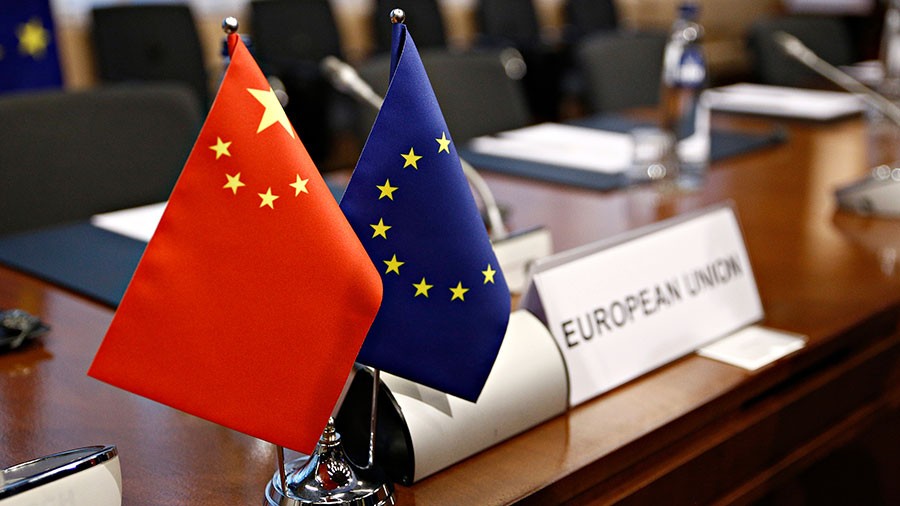 |
| The EU will reduce risks "but not completely decouple itself from China". (Source: Reuters) |
Risk Reduction Formula
Concerned about China's growing power and increasingly assertive foreign policy, the European Union (EU) is "arming itself" for a potential economic "war" with Beijing, according to German economic magazine Handelsblatt .
Handelsblatt cited an internal report by the European External Action Service (EEAS) as saying that the agency had outlined a new formula called “risk mitigation” that would allow Europe to maintain its leadership in key technologies and counter China’s efforts to pressure Europe.
Accordingly, the 27-nation alliance must eliminate "important dependencies that make the EU vulnerable to constraints" and prevent "the bleeding of sensitive technologies".
The new formula includes several elements, such as tighter export controls, controls on investment from China into Europe and vice versa, and increased restrictions on Chinese mobile equipment suppliers such as telecommunications giant Huawei.
The “de-risking” approach is different from the “de-coupling” approach. Because this approach does not fundamentally address the issue of eliminating economic relations with China, but rather clearly distinguishes between risky and non-risky transactions. Non-risky transactions continue unhindered.
As Europe's leading economy, Germany is also pursuing such a strategy in its relations with China.
The EEAS report is understood to be the first outline of a new "economic security" strategy that the European Commission (EC) is expected to announce at the end of June.
According to the EEAS report, Beijing's ambition is to "establish a new world order with China at its centre". Therefore, the EU must develop "new instruments or rules" to protect "vital security interests".
Measures should be limited to strategic sectors, such as semiconductors, quantum computing, space technology, artificial intelligence or biotechnology. The EU will mitigate risks “but not completely decouple itself from China”; Europe will “protect its interests” but not turn to protectionism.
According to German Federal Parliament member Nils Schmid, a foreign policy expert of the Social Democratic Party of Germany (SPD), risk mitigation is becoming the official policy and the dominant trend in the current relationship with Beijing.
China expert Reinhard Bütikofer shares a similar view. According to him, risk mitigation is the right guiding principle. Now the concept has to be interpreted in many different aspects: from economics, trade policy to security policy, geostrategy.
Specific actions in the areas
Reviewing European investments in China
The acquisition of German robot maker Kuka by Chinese conglomerate Midea in 2016 was a wake-up call for Europe.
Since 2020, the EU has had a “foreign investment screening mechanism”. Some deals have been blocked by member states. In Germany, the Ministry of Economic Affairs and Climate Protection recently banned Chinese investors from taking over chipmakers Elmos and ERS.
However, investment controls are implemented very differently across the 27 EU countries. Not all countries scrutinize investments from Beijing, and some do not scrutinize them at all. For the EU, the issue is to standardize controls more.
In the opposite direction, the control of European investments in the Northeast Asian country is also being considered. This is a new point, expressed through the concept of "foreign investment screening".
In a major speech on China policy in late March 2023, EC President Ursula von der Leyen supported the concept.
Behind the controls on overseas investment are EU concerns that existing export controls could be undermined by direct investments by EU businesses in China.
The EEAS report affirms that "the EU is determined to carry out foreign investment screening".
Building a reliable supply chain to eliminate dependency
The EU has also committed to the goal of eliminating dependence on fossil fuels from Russia, but this should not lead to dependence on green technology from China in the energy transition. However, it is a long way to go.
For example, for solar panels, batteries for electric cars or some important raw materials, Europe is currently heavily dependent on Chinese suppliers, which would be an important lever for Beijing in the event of a conflict.
Therefore, the EC wants to increase the production rate in the EU for products such as wind turbines, solar panels, electric vehicle batteries... At the same time, Europe is trying to establish raw material partnerships and trade partners with other countries in Asia, Africa and Latin America.
In this regard, the US Inflation Reduction Act (IRA) can help Europe. Under the IRA, Washington is investing billions of dollars in building new supply chains that can operate without Chinese suppliers. This helps create an alternative that Europe can rely on.
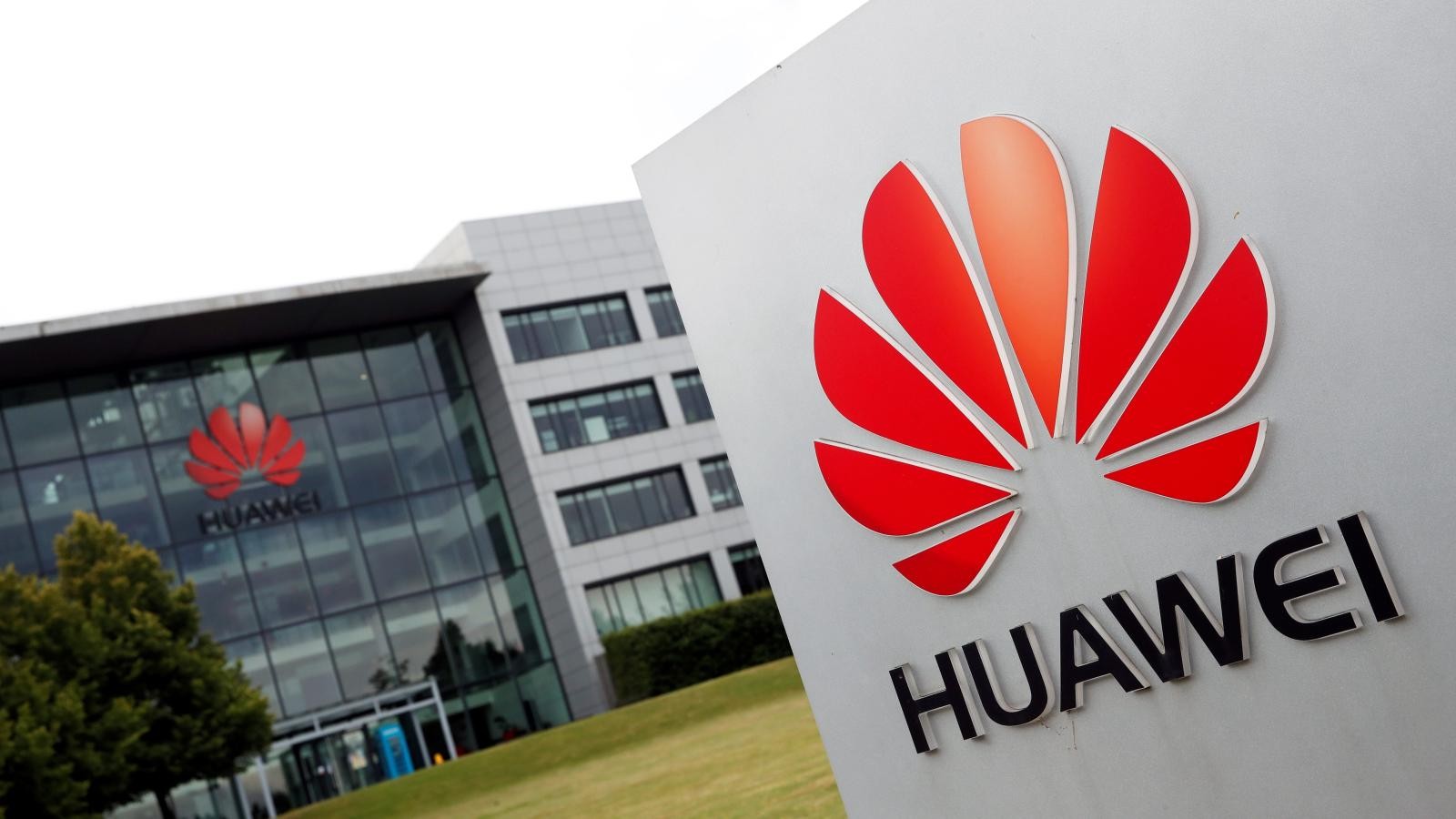 |
| The EU will strengthen restrictions on Chinese mobile equipment suppliers such as telecommunications giant Huawei. (Source: Quartz) |
Protecting critical infrastructure
More than two years ago, the EU launched a mobile cybersecurity toolbox, which recommended that “high-risk component suppliers” be excluded from Europe’s “critical infrastructure and factories.”
The toolbox is clearly aimed at Chinese telecoms giants like Huawei and ZTE, but it is disappointing that some member states, including Germany, have yet to implement the EU recommendation.
In Germany, discussions about excluding Huawei have been going on for more than four years. A few weeks ago, the Interior Ministry launched a new effort, but it has not yet yielded results because important network operators such as Telekom and Vodafone have made many commitments to Huawei.
Senior officials have warned that if there is a disagreement with Beijing, Germany's communications network could be disrupted, and that Huawei components in Germany's communications infrastructure should be removed urgently.
Upgrading export controls
The EU arms export ban prevents arms deals with China. Exports of dual-use goods (products that can be used for both civilian and military purposes) are also controlled.
However, the list of dual-use items is not exhaustive. The EEAS report supports the “upgrade” of these controls.
In the EU's view, all interventions are in line with international trade law, as the World Trade Organization (WTO) provides for exceptions to protect national security.
Source







![[Photo] Impressions of the Can Gio Whale Festival](https://vphoto.vietnam.vn/thumb/1200x675/vietnam/resource/IMAGE/2025/10/09/1759984089762_image12334-5642-jpg.webp)




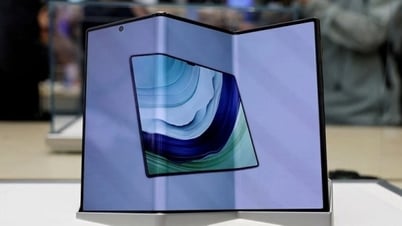
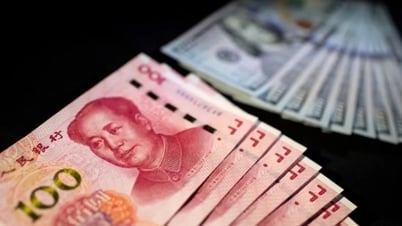


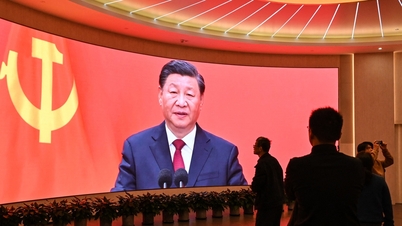


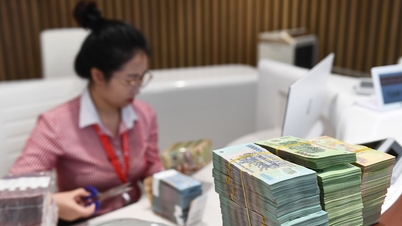

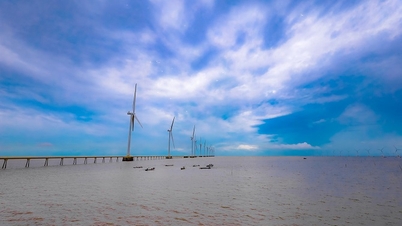

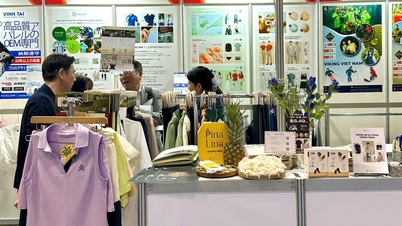






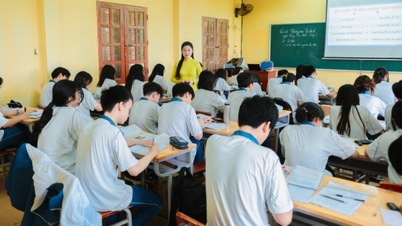
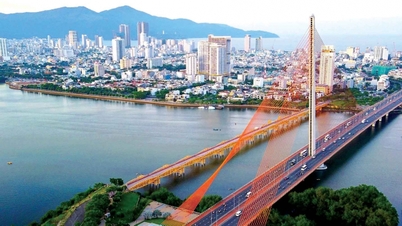
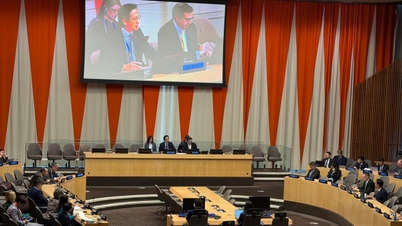
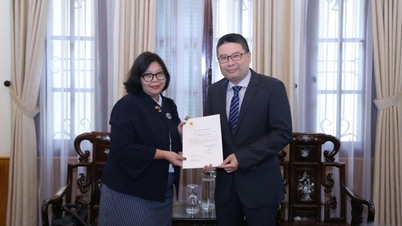
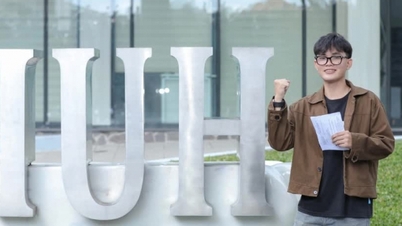
























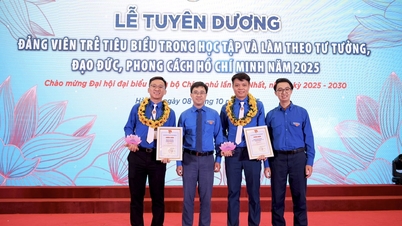
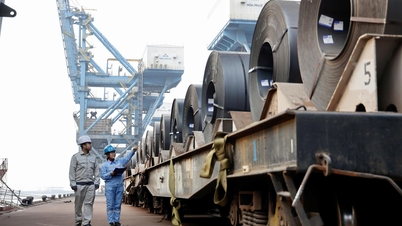





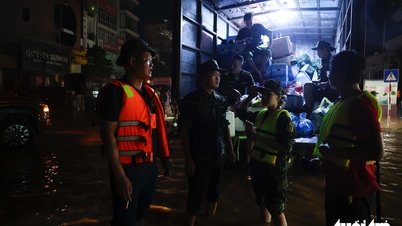










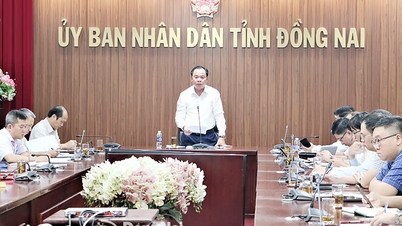





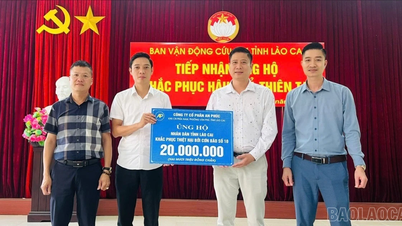






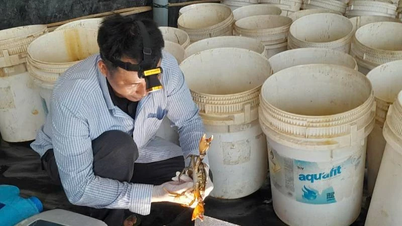











Comment (0)